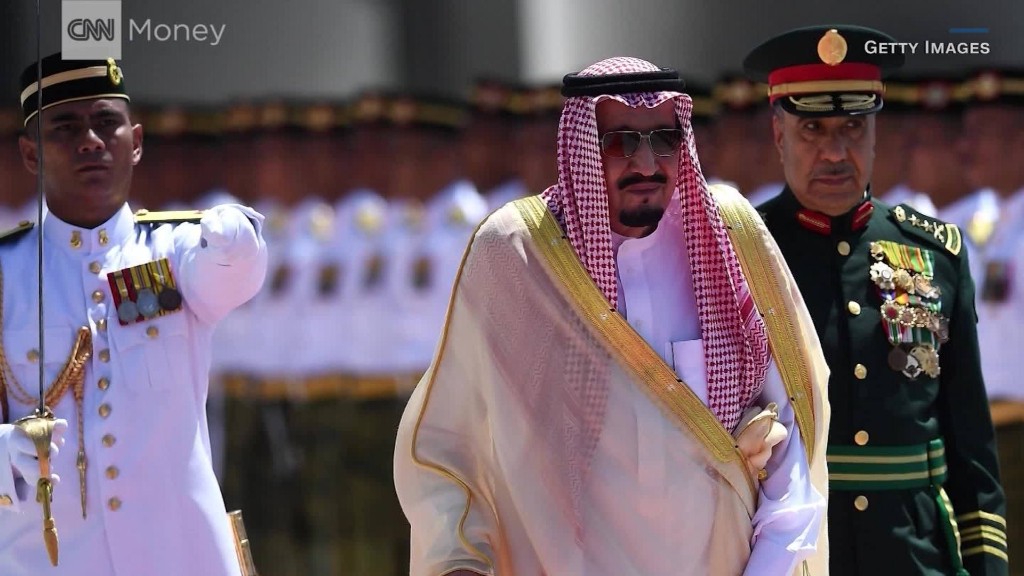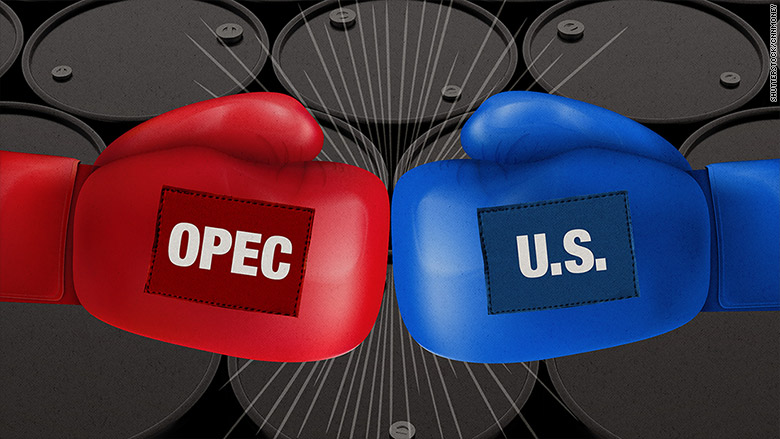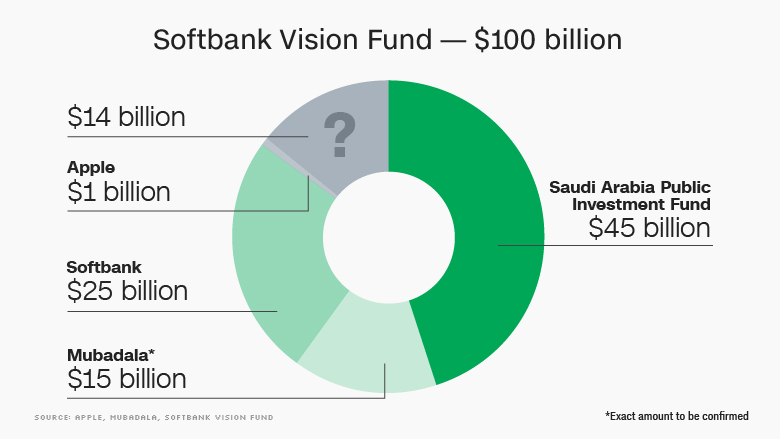
The man charged with making Saudi Arabia's economy great again will meet President Trump later Tuesday.
Deputy Crown Prince Mohammed bin Salman will have lunch at the White House in the highest level meeting yet between Saudi Arabia and the new U.S. president.
Prince Mohammed is spearheading the kingdom's attempts to wean itself off oil as part of an economic strategy called Vision 2030 announced last year. He's also defense minister and son of King Salman.
For decades, the Saudis have traded their oil for American guarantees of security. But the "oil for security" motto that has characterized the relationship has been upset by the huge increase in U.S. energy production.
Both sides may now be looking for a reset.
"With the obvious shift in global energy markets... the motto has now been rendered outdated," said Salman Al-Ansari, president of the Saudi American Public Relation Affairs Committee.
"The new motto is now more along the lines of 'trade and security for trade and security'."
Here's what they're likely to chew on over lunch.
Oil, oil, oil
Despite Saudi Arabia's attempt to break its oil dependency, it still relies on the industry for almost half of its GDP.
In 2014, it flooded markets in a bid to push other oil suppliers out of the market. It succeeded in forcing some U.S. shale producers to put production on hold but prices came crashing down, wreaking havoc on the Saudi economy.
Prices recovered after OPEC agreed last November to limit production. Saudi Arabia has cut back the most, but in doing so encouraged U.S. producers back to work. Investors are watching Saudi Arabia's next move, pushing prices lower again.

The kingdom is not only competing in world markets with American producers. It still needs the U.S. to buy its oil. It's a major supplier of crude oil to the U.S. economy -- the second biggest exporter to the U.S. after Canada.
But that demand has been shrinking in recent years. The U.S. imported just over a million barrels of Saudi oil each day in December 2016. As recently as April 2014, that number was as high as 1.6 million, according to the Energy Information Administration.
Related: The U.S. shale oil business is not dead
$50 billion tech investment
Saudi Arabia is planning to bankroll a huge investment in U.S. technology firms.
The kingdom has committed $45 billion to a $100 billion investment fund launched jointly with Japan's SoftBank (SFTBF).
When SoftBank founder and CEO Masayoshi Son visited Trump in December he promised to invest $50 billion into the U.S., telling the Wall Street Journal later that the money would come from the new fund.

Related: Trump is banking on a big tech investment (from the Middle East)
The prince may be seeking reassurances about those planned investments. Just last year, the kingdom was publicly expressing concerns about the fallout from a controversial 9/11 bill that was passed into law.
The Justice Against Sponsors of Terrorism Act allows families of those killed in the terror attacks to sue Saudi Arabia and seize assets. Saudi threatened to dump $750 billion in U.S. investments. It later downplayed the issue.
Prince Mohammed will also be looking for investment to flow both ways to support his diversification strategy.
"The deputy crown prince is coming to the U.S. with a plateful of economic potential," said Al-Ansari. "Vision 2030 will require a significant amount of foreign investment to help realize its objectives."
Saudi Arabia was once a potential market for Trump's own businesses. Just a few months after he announced he was running for president, he registered eight Saudi companies. But by November 2016, those companies had all been dissolved or canceled without doing any business.
Security and defense
Before his inauguration, Trump threatened to halt imports of oil from Saudi Arabia and other Arab countries if they didn't commit ground troops to fight ISIS, or at least reimburse the U.S. for its efforts.
But the security relationship is a lot more complex.
The U.S. is part of a Saudi-led coalition fighting Houthi rebels in Yemen. And Saudi is the biggest purchaser of American weapons.
The Obama administration, concerned about civilian casualties in Yemen, suspended certain arms sales to Saudi Arabia. The Trump administration has resumed those sales, and the prince may have one item in particular on his shopping list.
"Saudi Arabia is aiming to buy fighter jets, the F-35 and I think this is one of the most important things that they will discuss," said Ahmed Alibrahim, an expert in Saudi-U.S. affairs.
With such issues at hand, the prince and Trump may need every minute of the 2-3 hours they have.


